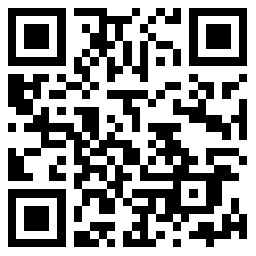Mr. Huang won the first instance of the case of trade secret dispute
Recently, Zhihuan Law Firm received the (2021) Jing 0107 Min Chu No. 12239 Civil Judgment of Beijing Shijingshan District People's Court. In the case of the plaintiff Beijing company and the defendant Mr. Liu infringing on business secrets (trade secrets), Mr. Huang Jibao won the first instance on behalf of Mr. Liu, and the court rejected all the claims of a Beijing company.
1、 Basic Case
In April 2016, a company in Beijing signed a labor contract and an Employment Cooperation Agreement with Mr. Liu. Liu Shengxian's work content was to teach in the financial channel of a third-party live broadcast platform opened by a company in Beijing. Later, in May 2017, the two parties terminated the labor relationship.
A company in Beijing claimed that Mr. Liu had infringed on his business secrets, and requested Mr. Liu to compensate for the economic loss of 4.8 million yuan, as well as litigation premiums, insurance premiums and other related expenses.
The information that a company in Beijing claims to protect as business secrets includes two parts: first, Mr. Liu's QQ number involves the creativity, management, sales, finance, customer information, data and other information of a company in Beijing; The second is the customer list.
2、 The court adopted the defense opinions expressed by the agent on behalf of Mr. Liu and rejected all the plaintiff's claims
After accepting the entrustment of Mr. Liu, Lawyer Zhi Huanhuang immediately organized the team to analyze the case and search for relevant cases. In combination with the actual situation of the case, Lawyer Huang mainly defended from the perspective of whether the information claimed by the plaintiff conforms to the "three characteristics" of trade secret protection, whether the plaintiff adduced evidence to prove that the defendant disclosed and used confidential information in violation of confidentiality obligations, and the plaintiff's losses.
After hearing, the court rejected all the claims of the plaintiff, a company in Beijing. The judgment fully reflected the recognition and adoption of lawyer Huang's defense opinions. The court held that:
First of all, the plaintiff, a company in Beijing, did not submit valid evidence to prove that the QQ number involved in the case contains the business information such as the company's creativity, management, sales, finance, customer information and data claimed by the plaintiff, nor did it provide evidence to prove that the QQ number is a special internal number for the work provided by the plaintiff for the defendant.
Secondly, according to the relevant evidence submitted by a company in Beijing, the plaintiff can only prove that the customer list claimed by the plaintiff contains customer name, mobile phone contact information, ID, account and password, and the last three items are set by the plaintiff. After examination, they do not meet the constitutive requirements of trade secrets and should be excluded.
Thirdly, the plaintiff, a company in Beijing, did not submit valid evidence to prove that the specific information of its company's customer database and the list of its own customers held by the defendant were the same as those of the plaintiff's company's customer database, and the plaintiff took appropriate and reasonable confidentiality measures for the customer information containing the customer's name and contact information. Although the plaintiff, a company in Beijing, claimed that its confidentiality measures were to sign a confidentiality agreement with the defendant and conduct corresponding supervision and management, the scope and specific content of trade secrets were not specified in the confidentiality agreement involved in the case, and a series of cooperation agreements signed between the plaintiff and the defendant did not contain the specific content of the business secrets that the plaintiff claimed in the case. Therefore, the plaintiff, a company in Beijing, could not prove that it had taken corresponding confidentiality measures against the claimed business information.
Finally, the court also noted that the plaintiff did not submit any valid evidence to prove what unfair means the defendant used to obtain, disclose and use the "trade secrets" claimed by the plaintiff, so it did not support the plaintiff's claims.
3、 Case evaluation
Trade secret includes technical information and business information. Compared with technical information, business information, such as customer list, is difficult to grasp as the constituent condition of trade secret. In practice, the plaintiff needs to provide evidence to confirm the trade secret attributes of the customer list, namely confidentiality, confidentiality and value, otherwise it will bear adverse consequences In this case, the customer list that the plaintiff wants to protect has the attributes of non secrecy, confidentiality and other trade secrets, so the court of first instance rejected all of its claims.
First, The confidentiality of the customer list requires that the customer list must be specific, even if the customer list can be distinguished from the list easily available through open channels. The public telephone number, list register, customer sign in form, etc. are directly extracted from the customer list, which is not confidential. The customer list formed only by reorganizing, screening and mining the public list based on investigation and understanding of customer needs will be secret due to its specificity. Therefore, the customer list cannot be simply understood as a list of customer names, but also includes comprehensive information such as customer demand types, demand habits, business rules, price affordability, and even the personality of business executives.
Second,Confidentiality of customer lists. The Anti Unfair Competition Law stipulates that confidentiality refers to trade secrets "which are kept confidential by the obligee". Common confidentiality measures include: (1) rules and regulations, such as provisions on confidentiality obligations; (2) Confidentiality agreement; (3) Confidential material means, such as encryption, safe deposit box, etc; (4) Other confidentiality measures, such as confidential publicity and education, oral notification, etc. Of course, the Trade Secret Law does not require that the confidentiality measures be flawless. Excessive confidentiality requirements may hinder the use of trade secrets. Therefore, reasonable confidentiality measures can be taken to make the confidentiality obligor clear of his confidentiality obligations, so that competitors or others cannot obtain trade secrets through normal and legal means. However, in this case, in a series of cooperation agreements signed by the plaintiff and the defendant Mr. Liu, there was no specific content of the business secret information claimed by the plaintiff in this case, so his claims were rejected.

免责声明:本网部分文章和信息来源于互联网,转载出于传递更多信息和学习之目的。如转载稿涉及版权等问题,请立即联系我们,我们会予以更改或删除相关文章,保证您的权利。


